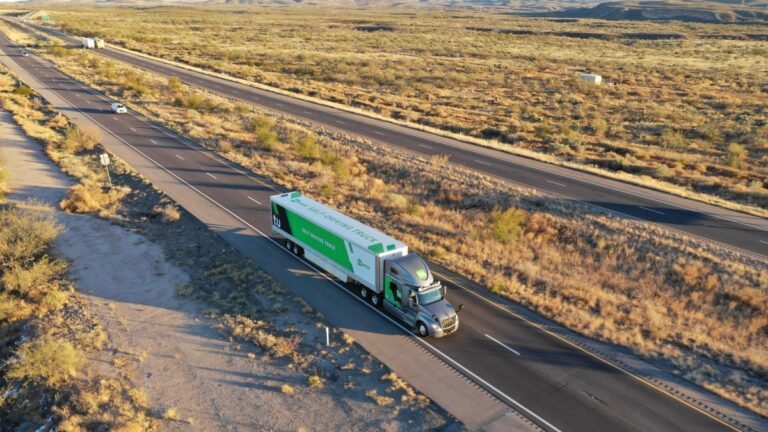When TuSimple went public in 2021, it was flying high as the leading maker of self-driving trucks in the United States. Now — after a series of internal disputes and the loss of a critical partnership with truck maker Navistar — TuSimple is pulling out of the US altogether.
The listed company told a regulatory filing Monday that it is laying off most of its U.S. workforce and selling assets here as it leaves the country for Asia. About 150 US workers, or 75% of the workforce in the country, will be laid off. The remaining 50 employees will wind down TuSimple’s U.S. operations, including the sale of assets, and help move the company into the Asia-Pacific region, according to the filing.
Once the restructuring is complete, TuSimple will have approximately 700 full-time employees worldwide.
With TuSimple’s exit, a handful of self-driving truck companies remain, including Aurora and Kodiak Robotics.
A year ago, TuSimple was exploring a different business scenario. The company, already struggling with executive reshuffles and a delisting warning, lost its partnership with Navistar to jointly develop autonomous trucks. About 25% of staff were laid off shortly afterwards and TuSimple said it was in the process of selling its Asia-focused business.
Six months later, TuSimple reversed course, doubling its operations in China and Japan while beginning to explore strategic alternatives for its US operations, including a sale. The move was an about-face for TuSimple, a company that has emphatically defined itself as an American company with operations abroad, despite its founding team and early backers coming from China.
Without a buyer, TuSimple is now forced to wind down its US operations and sell any assets it may have.
TuSimple estimates it will incur one-time charges of approximately $7 million to $8 million in connection with the restructuring plan, with most of the cash being used for severance pay, employee benefits and related expenses. The majority of restructuring charges will be recorded in the fourth quarter of 2023, the company said.
